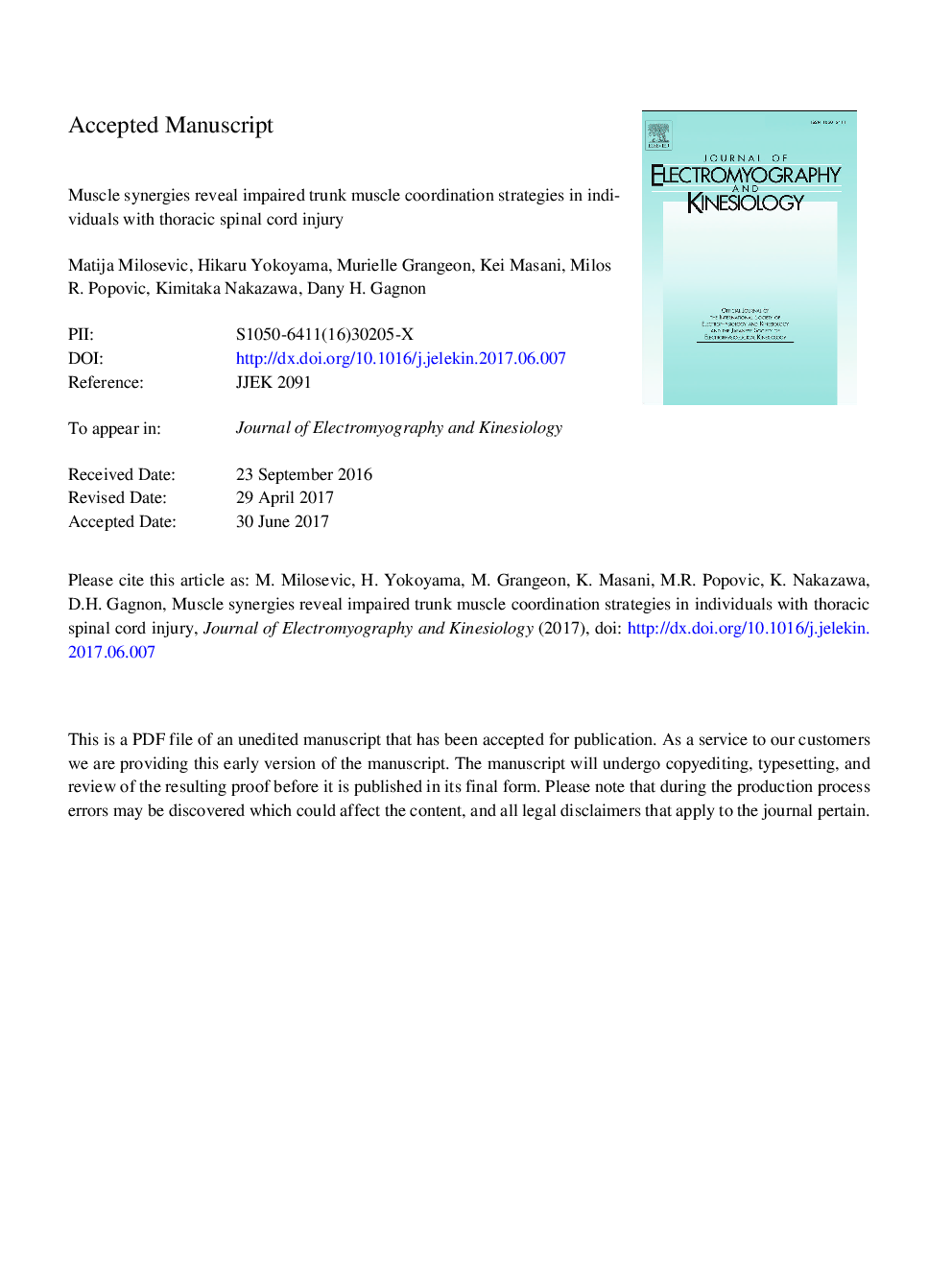ترجمه فارسی عنوان مقاله
همکاری های عضلانی نشان می دهد استراتژی های هماهنگی عضله تنه در افراد مبتلا به آسیب نخاعی قفسه سینه
عنوان انگلیسی
Muscle synergies reveal impaired trunk muscle coordination strategies in individuals with thoracic spinal cord injury
| کد مقاله | سال انتشار | تعداد صفحات مقاله انگلیسی |
|---|---|---|
| 87976 | 2017 | 31 صفحه PDF |
منبع

Publisher : Elsevier - Science Direct (الزویر - ساینس دایرکت)
Journal : Journal of Electromyography and Kinesiology, Volume 36, October 2017, Pages 40-48
ترجمه کلمات کلیدی
آسیب نخاعی، عضلات تنه تعادل ظریف ترکیبات عضلانی، تقسیم ماتریس غیر منفی،
کلمات کلیدی انگلیسی
Spinal cord injury; Trunk muscles; Postural balance; Muscle synergies; Non-negative matrix factorization;

